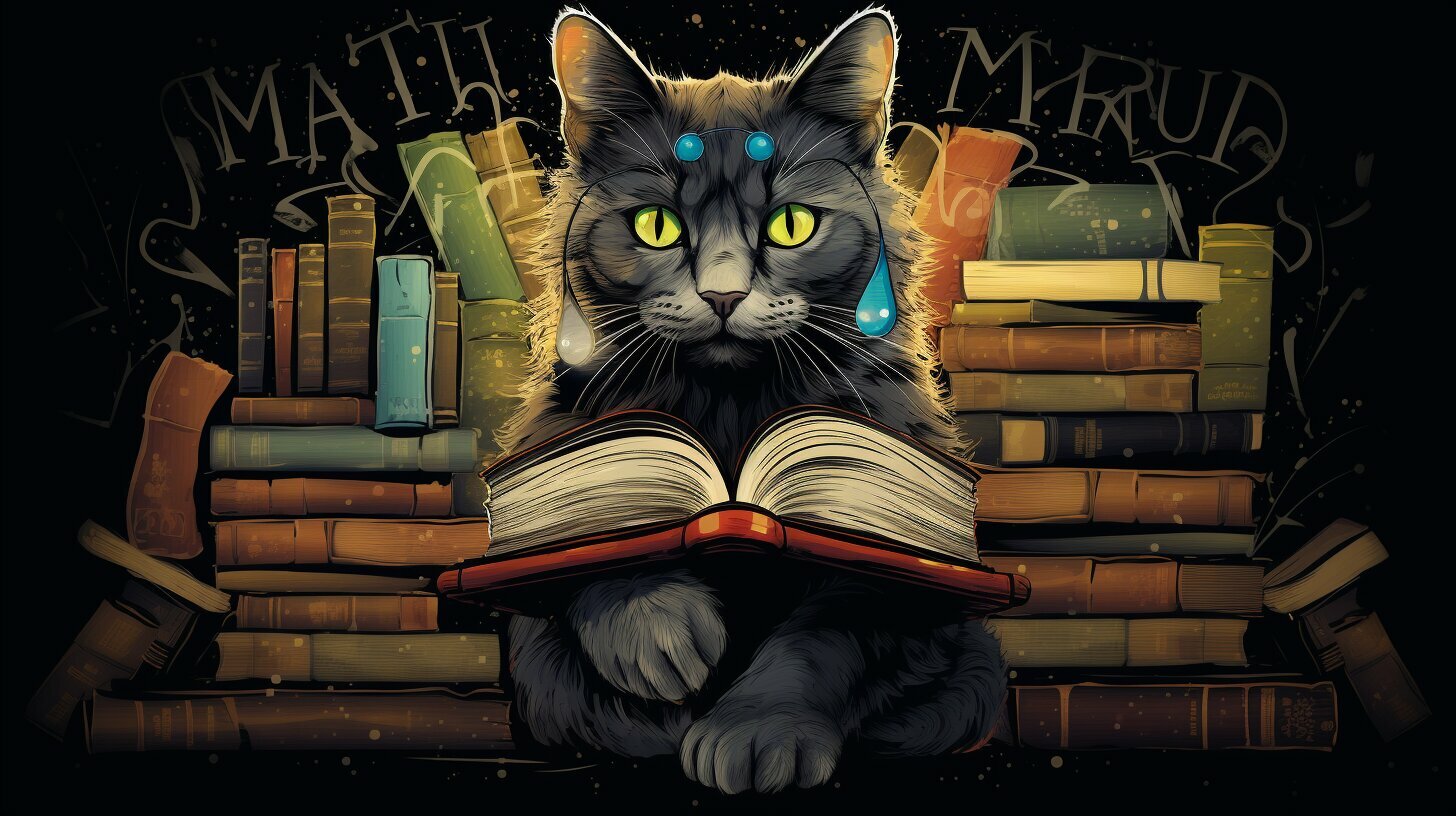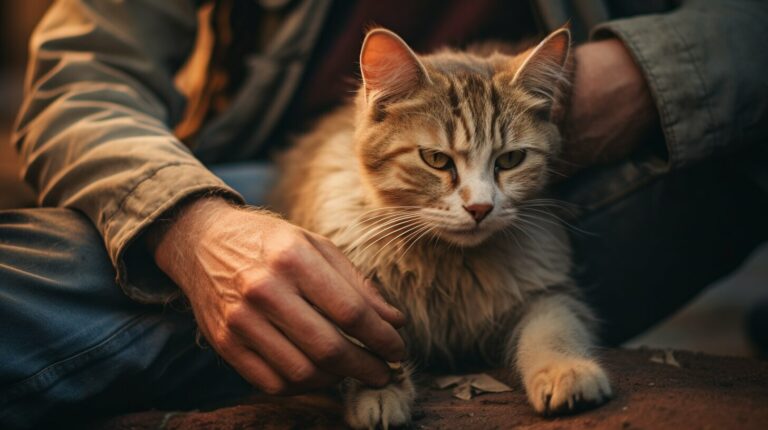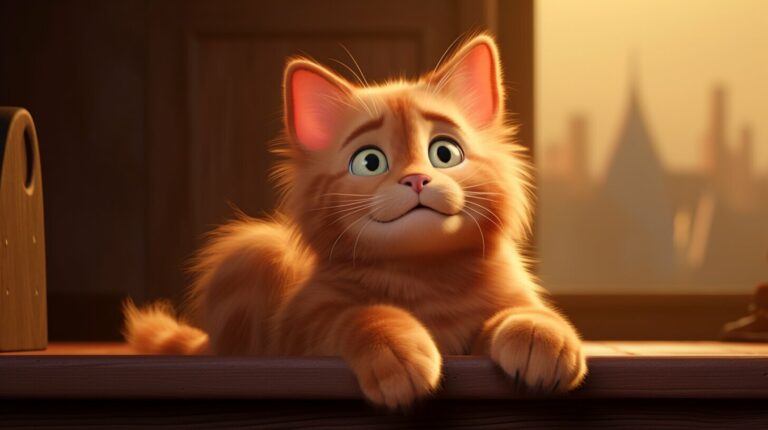Unraveling the Tail: Why are Cats Called Pussies Revealed
Welcome to our quirky expose where we dive into the fascinating world of feline nomenclature and unravel the mystery behind why cats are often called pussies. From the origins of cat nicknames to the multifaceted meanings of the word “pussy,” we’ll explore the linguistic clues, cultural influences, and even the connection to female genitalia. Prepare to be enlightened!
Key Takeaways:
- The word “pussy” has multiple meanings, including referring to a cat and female genitalia.
- The term “pussycat” combines “pussy” with “cat,” possibly for rhythmic or rhyming reasons.
- The word “pussy” likely comes from the French word “puss” or the Old Norse word “pūss,” both meaning cat.
- “Pussycat” is most commonly used in English-speaking countries like the UK, US, Australia, and New Zealand.
- The association of cats with femininity may explain the slang usage of “pussy” as a derogatory term for women.
The Origins of Cat Nicknames
Before we delve into the specifics of why cats are called pussies, it’s important to understand the broader history of cat nicknames and how they evolved throughout different cultures. Cats have been given various names and monikers in different languages and societies, reflecting the unique relationships humans have had with these enigmatic feline creatures.
The origins of cat nicknames can be traced back to ancient times. In Egyptian mythology, cats were revered and worshipped, often associated with the goddess Bastet. The ancient Egyptians called cats “miw” or “miu,” which represented the sound they made. These early names reflected the close bond between humans and cats, recognizing their playful and sometimes mischievous nature.
As civilizations grew and languages evolved, so did the names for cats. In Middle English, cats were often referred to as “puss” or “puss cat,” which may have originated from the word “pus” or “puss” meaning “cat” in French. The association of cats with the word “puss” continued to be used in various forms, leading to the use of “pussy” as a nickname for cats.
| Language | Word for Cat |
|---|---|
| French | puss |
| Old Norse | pūss |
| English | pussy |
The term “pussycat” emerged as a playful combination of the words “pussy” and “cat.” This whimsical term gained popularity in English-speaking countries, such as the UK, US, Australia, and New Zealand. The blend of these words not only created a catchy and rhythmic sound, but it also added a touch of endearment to the name for these beloved pets.
Overall, the evolution of cat nicknames is a testament to the rich history and cultural significance of our furry friends. From ancient Egypt to modern-day societies, cats have been given a multitude of names that reflect their unique qualities and the deep connection between humans and these extraordinary creatures.
The Multifaceted Meaning of “Pussy”
Let’s explore the word “pussy” itself and its range of meanings, from its connection to feline terminology to its slang usage in cat-related phrases. With such a playful term, it’s no wonder that “pussy” has become a popular nickname for our feline friends.
Starting with its connection to feline terminology, “pussy” is often used as an informal and affectionate name for cats. It highlights their adorable and sometimes mischievous nature, capturing the essence of our beloved pets. However, the word “pussy” doesn’t stop there.
In the realm of slang, “pussy” has taken on a whole new meaning. Cat-related phrases like “scaredy-cat” and “copycat” have become common idioms in our language, adding a touch of feline charm to our everyday conversations. We can’t help but smile when we hear these playful expressions.
| Examples of Cat Slang Phrases |
|---|
| “Curiosity killed the cat” |
| “The cat’s out of the bag” |
| “Look what the cat dragged in” |
But it’s important to note that the usage of “pussy” can vary based on context and region. For some, it may be an endearing term for a cat, while for others, it may hold a more derogatory connotation when applied to women. The association between cats and femininity plays a role in this, as cats have long been associated with female energy and mystique.
In conclusion, the word “pussy” is a fascinating example of how language evolves and takes on different meanings. From its connection to feline terminology to its slang usage in cat-related phrases, it showcases the playful and versatile nature of our love for cats. So the next time you hear the word “pussy,” remember its multifaceted nature and embrace the delightful world it represents.
The Linguistic Clues: French and Norse Origins
To uncover the roots of the term “pussy” as a nickname for cats, we must explore the linguistic influences of French and Old Norse on the English language.
The French word “puss” and the Old Norse word “pūss” both mean “cat” and provide potential origins for the term. The similarities between these words and the nickname “pussy” suggest a linguistic connection.
In French, “puss” is a colloquial term for cat, sometimes used in nursery rhymes and children’s stories. The word likely made its way into the English language through contact with French-speaking Normans during the medieval period.
The Old Norse word “pūss” also means “cat” and has a similar pronunciation to the modern English term “pussy.” Norse influences on the English language were significant due to Viking invasions and settlement in parts of England during the medieval period.
While the exact path of how these words evolved and influenced each other remains unclear, it is fascinating to see the linguistic clues that point to French and Norse origins for the term “pussy” as a nickname for cats.
| Language | Word | Meaning |
|---|---|---|
| French | puss | cat |
| Old Norse | pūss | cat |
Pussycat: A Playful Combination
A delightful twist in the feline nickname saga is the birth of pussycat – a whimsical melding of pussy and cat that holds a special place in our linguistic repertoire. This endearing term has become synonymous with cute and cuddly cats, often evoking images of fluffy companions with mischievous glints in their eyes.
With its playful rhythm and rhyming nature, pussycat has become a popular choice for children’s songs and nursery rhymes. It adds a touch of whimsy to our language, reminding us of the undeniable charm and grace of our feline friends. Whether it’s the famous chorus of “Soft Kitty” from The Big Bang Theory or the iconic line “Pussycat, Pussycat, where have you been?” from the well-known nursery rhyme, this term has found its way into our hearts and cultural expressions.
The usage of pussycat is not limited to English-speaking countries, as it has also gained popularity in countries like the UK, US, Australia, and New Zealand. The term has been embraced across cultures, providing a playful and endearing way to refer to our beloved four-legged companions.
The Feline Nickname Saga Continues
In the ever-evolving lexicon of cat slang phrases, the emergence of pussycat is a testament to the creativity and linguistic prowess of humans. It showcases our ability to mesh words together, creating new and delightful terms that capture the essence of our furry friends. So next time you interact with a cat, whether you’re singing a tune or engaging in playful banter, embrace the whimsy of pussycat and revel in the joy it brings to our language.
| Related Words and Phrases | Meaning |
|---|---|
| Kitty | Informal term for a cat, often used to describe a young or small feline |
| Purrfect | A playful way to describe something that is perfect, often used in reference to cats and their endearing qualities |
| Feline | Term used to describe any animal belonging to the cat family, including domestic cats |
Cultural Popularity and Literary References
Cats and the word “pussy” have long been intertwined in our cultural consciousness, leaving their mark on nursery rhymes, literature, and even catchy tunes. From the mischievous feline characters in Lewis Carroll’s Alice’s Adventures in Wonderland to T.S. Eliot’s whimsical poetry collection, Old Possum’s Book of Practical Cats, these furry creatures have captured our imaginations and played a significant role in shaping our cultural lexicon.
In nursery rhymes, cats often take center stage. Who can forget the adorable feline who lost her mittens or the sly cat who played the fiddle? These popular rhymes, passed down through generations, have immortalized the connection between cats and the word “pussy” in our collective memory. They serve as a testament to the enduring appeal of these furry companions.
Additionally, the term “pussy” has found its way into music and songs. In the 1960s, Tom Jones crooned about a “little old lady” who had a talking cat named “Pussycat,” capturing hearts and climbing the charts. The playful combination of “pussy” and “cat” in the term “pussycat” has a rhythmic quality that lends itself to catchy tunes and memorable lyrics.
The Enduring Legacy of Cats and “Pussy”
Throughout history, cats have also made appearances in literature, capturing the hearts of both writers and readers alike. Whether it’s the enigmatic Cheshire Cat in Alice’s Adventures in Wonderland or the mischievous Macavity in T.S. Eliot’s poetry, these feline characters have become iconic symbols in our literary landscape.
| Author | Work |
|---|---|
| Charles Perrault | Puss in Boots |
| Edgar Allan Poe | The Black Cat |
| Stephen King | The Cat from Hell |
“Cats are connoisseurs of comfort.” – James Herriot
Furthermore, the word “pussy” has made its way into the slang vocabulary, often used as a derogatory term to refer to women. While the exact connection between cats and female genitalia remains unclear, it is believed to stem from the association of cats with femininity. Cats have commonly been associated with grace, elegance, and sensuality, qualities that have been attributed to women as well. This link between cats and femininity has given rise to the slang usage of “pussy” and its derogatory connotations.
Overall, the word “pussy” holds a multifaceted place in our language and culture. From its origins in the French and Norse languages to its playful combination with the word “cat,” it has woven itself into the fabric of our cultural consciousness. Whether it’s through nursery rhymes, literature, or slang, the word “pussy” continues to evoke various meanings and associations, allowing us to appreciate the enduring fascination with these enigmatic creatures.
References:
- Carroll, Lewis. Alice’s Adventures in Wonderland.
- Eliot, T.S. Old Possum’s Book of Practical Cats.
The Connection to Female Genitalia
While our investigation into the feline etymology of “pussy” is intriguing, it’s important to acknowledge the link between cats, femininity, and its slang usage as a term for women. The association of cats with femininity can be traced back to ancient times, where felines were often seen as symbols of grace, elegance, and sensuality. This connection may have contributed to the adoption of “pussy” as a slang term for women.
It’s worth noting that the term “pussy” is not exclusive to English-speaking countries. In various cultures around the world, similar words are used to refer to both cats and female genitalia. This linguistic overlap suggests an inherent association between feline qualities and femininity.
However, it’s essential to recognize that the usage of “pussy” as a derogatory term for women is highly offensive and disrespectful. Such language perpetuates harmful stereotypes and objectifies women. It’s crucial to promote gender equality and respectful communication in all aspects of our lives.
Table: Cultural References of “Pussy” in Literature and Songs
| Literature | Songs |
|---|---|
| “Puss in Boots” by Charles Perrault | “Pussy Cat, Pussy Cat” Nursery Rhyme |
| “The Black Cat” by Edgar Allan Poe | “The Love Cats” by The Cure |
| “Old Possum’s Book of Practical Cats” by T.S. Eliot | “What’s New Pussycat?” by Tom Jones |
- In literature, cats have been featured in various works, from Charles Perrault’s “Puss in Boots” to Edgar Allan Poe’s “The Black Cat.” These portrayals highlight the mysterious and independent nature often associated with felines.
- In songs, the term “pussy” has been used playfully, such as in the nursery rhyme “Pussy Cat, Pussy Cat” or the catchy tune “What’s New Pussycat?” by Tom Jones. These cultural references emphasize the connection between cats and popular culture.
Overall, the use of “pussy” in relation to cats and female genitalia is complex and multifaceted. While it may have originated from linguistic roots, it has evolved and taken on different meanings in different contexts. It’s important to approach these subjects with sensitivity and respect, recognizing the potential for harm and promoting inclusive language.
Conclusion
Through our exploration of cat etymology and feline terminology, we’ve uncovered the fascinating origins and cultural significance behind why cats have come to be known as “pussies.”
The word “pussy” has multiple meanings, including referring to a cat and female genitalia. It is believed that the origin of the word can be traced back to the French word “puss” or the Old Norse word “pūss,” both meaning cat.
The term “pussycat” emerged as a playful combination of “pussy” and “cat,” possibly for rhythmic or rhyming reasons. This term gained popularity in English-speaking countries like the UK, US, Australia, and New Zealand, and has been incorporated into nursery rhymes, songs, and literature.
Furthermore, the association of cats with femininity has led to the slang usage of “pussy” as a derogatory term for women. However, the exact reason for this connection remains unclear.
In conclusion, the word “pussy” has various meanings and associations, but its usage can vary based on context and region. Its origin and evolution showcase the dynamic nature of language and how words can take on different connotations over time.
FAQ
Why are cats called “pussies”?
The nickname “pussy” for cats has various theories and historical origins. It likely comes from the French word “puss” or the Old Norse word “pūss,” both meaning cat.
How did cat nicknames originate?
Cat nicknames developed over time, leading to the usage of “pussy.” Different terms for cats emerged through cultural influences and linguistic evolution.
What are the different meanings of the word “pussy”?
“Pussy” has multiple meanings, including referring to a cat and female genitalia. Its usage can vary based on context and region.
What is the linguistic connection between French and Norse origins?
The word “pussy” may have originated from the French word “puss” and the Old Norse word “pūss,” both meaning cat. The exact connection between these languages is uncertain.
How did “pussycat” come about?
The term “pussycat” emerged as a playful combination of “pussy” and “cat,” likely for rhythmic or rhyming purposes.
How is “pussy” popular in literature and culture?
The word “pussy” has been used in nursery rhymes, songs, and literature, giving it popularity and cultural relevance.
What is the connection between cats and female genitalia?
The association of cats with femininity may have contributed to the slang usage of “pussy” as a derogatory term for women. The exact reason for this association, however, remains unclear.
What is the conclusion about cats being called “pussies”?
Cats being called “pussies” has various theories and historical factors. It is a term with multiple meanings and associations, but its usage can vary based on context and region.






